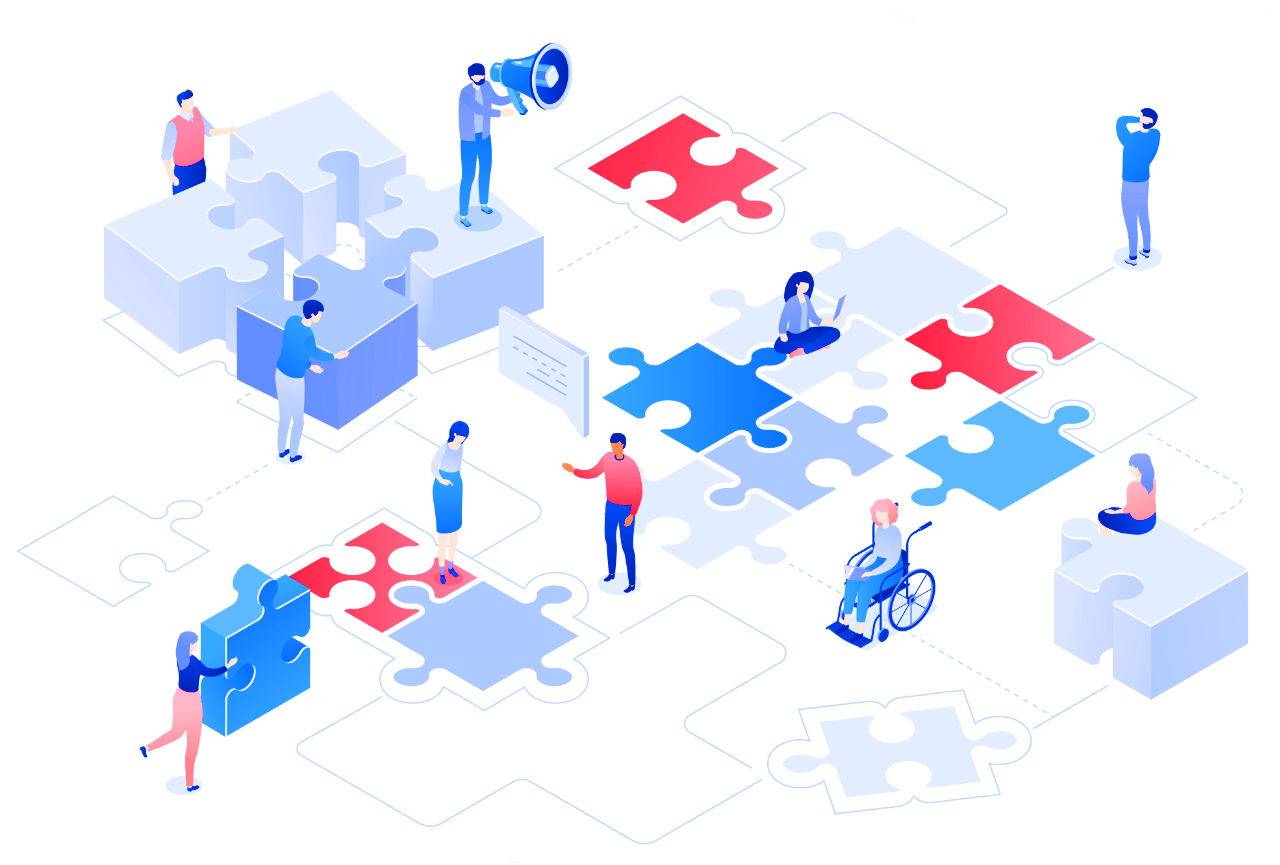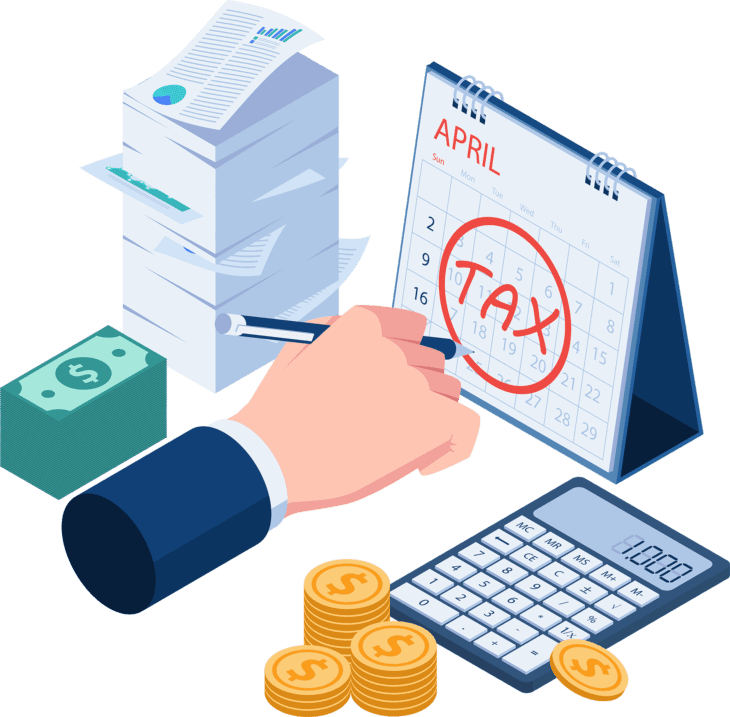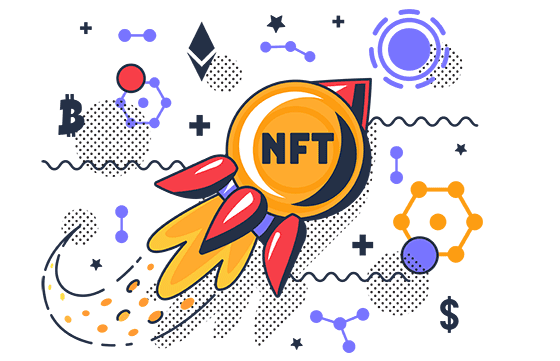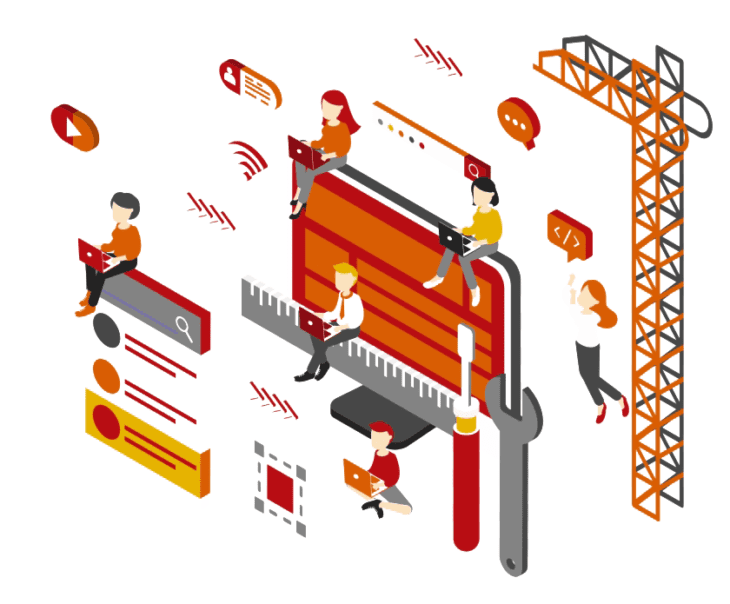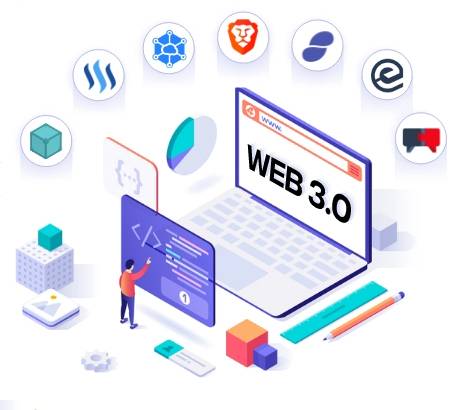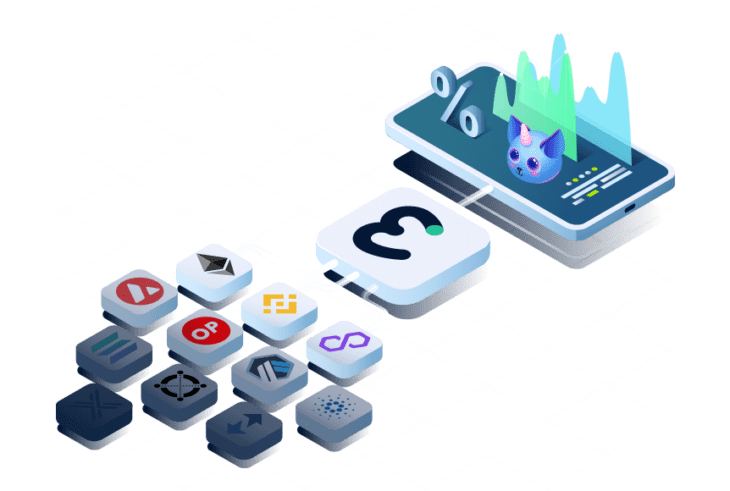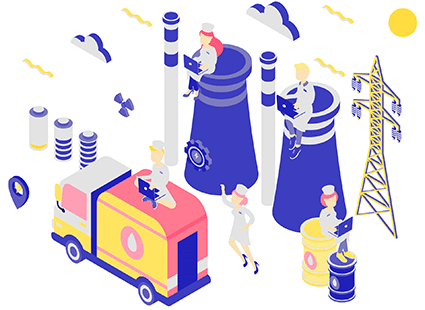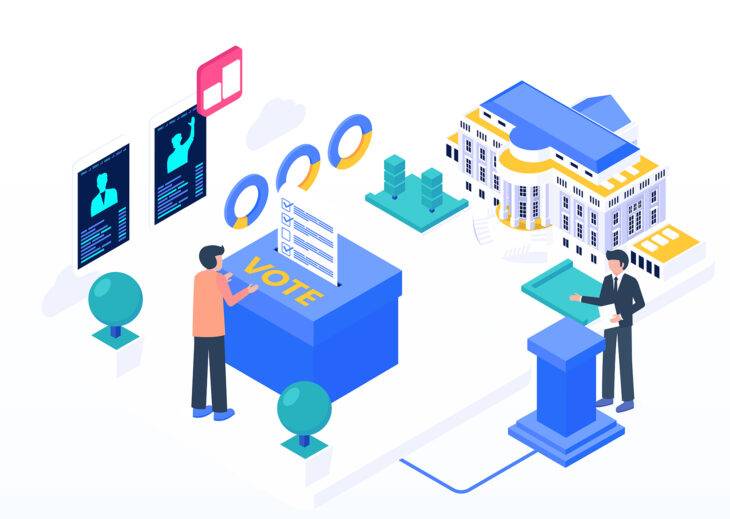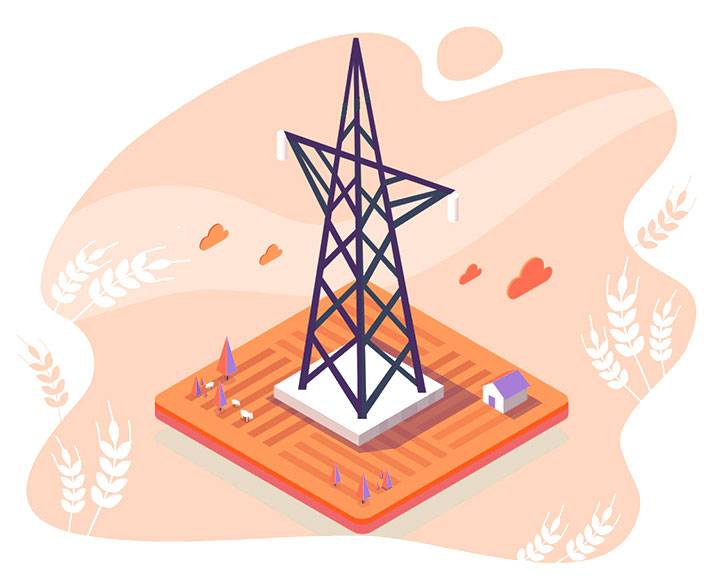I. Introduction
In the new digital age landscape, a new trend is taking the world by storm: tokenization. This process, which involves converting real-world assets into digital tokens on a blockchain, is transforming how we interact with the world around us. From finance to real estate, healthcare to education, energy distribution to media and entertainment, tokenization will reshape industries and revolutionize the way we do business.
Tokenization is impacting various industries by digitizing assets and unlocking new opportunities. In the real estate sector, it enables fractional ownership of properties, making investments more accessible, liquid, and transparent. Tokenization has also found a home in the art and collectibles business, as creators and collectors may now tokenize their own works.
Moreover, tokenization streamlines operations and enhances business efficiency by digitizing assets such as supply chains, real estate holdings, and intellectual property rights. In the healthcare sector, it is being used to securely transfer medical records and track pharmaceuticals, while in the sports industry, it is democratizing investments and fostering innovation. Overall, blockchain tokenization is reshaping traditional sectors, improving liquidity, and providing unprecedented flexibility and accessibility across various domains.
II. Tokenization in Different Sectors
Virtually any industry could potentially benefit from tokenization. Here are a few examples to spark the imagination, but the impact could extend far beyond these sectors.
A. Tokenization in the Supply Chain
Tokenization in the supply chain refers to using digital tokens to represent individual assets like products, parts, or shipments. Each token is unique and tracks the corresponding asset throughout the supply chain. For example, a smart contract can be associated with a token, specifying the conditions for transferring or accessing the asset at different supply chain stages.
This approach ensures transparent and secure asset tracking, reduces the risk of fraud or errors, and streamlines processes like verification, authentication, and payment. Ultimately, tokenization improves traceability, efficiency, and trust among involved parties, offering significant advantages over traditional methods.
B. Tokenization in Real Estate
Tokenized real estate projects enable fractional ownership, allowing small investors to participate in once inaccessible properties. This approach has gained popularity due to its ability to provide increased liquidity and accessibility to an asset class that traditionally lacks liquidity. However, some challenges must be addressed as tokenized real estate gains traction.
The true obstacles to achieving “real” tokenization of real estate are not commonly discussed. Tokenized real estate offers vary in the extent of ownership they provide to investors, impacting investor rights and responsibilities in the case of bankruptcy. This requires transparency from issuers and intermediaries. Regardless of these obstacles, real estate tokenization has many benefits, including inexpensive transaction costs, transparency, market access, and enhanced liquidity.
The amount of real estate that can be tokenized may vary, similar to conventional real estate investment. Nonetheless, tokenization restricts the impact of third-party influence on investors. Because the tokens are backed by genuine properties, their value changes in response to the performance of the underlying asset, much like traditional real estate investing, but with the additional advantage of simple transferability.
While challenges exist, real estate tokenization offers significant benefits, including increased liquidity, market access, transparency, and low costs. As the sector evolves, overcoming these issues will be critical to realizing the full potential of real estate tokenization.
C. Tokenization in Healthcare
In healthcare, tokenization serves as a protective shield for personal data, replacing sensitive information with a unique token, ensuring secure yet accessible data for medical use. This innovative approach enhances data privacy and security, addressing challenges related to data access, accuracy, and protection in the healthcare industry.
By replacing personally identifiable information (PII) with randomly generated identification tokens, tokenization creates new levels of privacy, usability, and accessibility for patient data. It also improves clinical care by de-identifying medical records, test results, imaging reports, medication history, and other sensitive information, safeguarding patient privacy and enabling comprehensive data analysis.
Additionally, patient tokenization allows for linking disparate data sets at the patient level, providing a more complete view of the patient journey and enabling real-world research without compromising patient confidentiality. This approach offers significant benefits in terms of improving patient outcomes and enhancing clinical and real-world research capabilities
D. Tokenization in Education
Tokenization in education is a transformative concept that is reshaping the traditional learning landscape. It entails producing digital tokens that reflect accomplishments, competencies, and academic advancement. These blockchain-based tokens have real world value and may be sold, redeemed, or used to access educational resources.
The token economy in education incentivizes learning by providing a tangible reward for learning efforts. Students are encouraged to seek lifelong learning and expand their knowledge and skill set as they amass tokens for finishing assignments, projects, or tests. By using gamification aspects to promote healthy rivalry and engagement, this strategy creates a dynamic learning environment.
Additionally, tokenized credentials interface with industries with ease, bridging the skills gap between higher education and the labor market by enabling companies to verify talents rapidly. Tokens and blockchain integration in education is a step toward a future where credentials are improved and learning is rewarded, producing a generation of driven and capable individuals.
Tokenization can also provide a transparent and accountable way of distributing scholarship funds or educational grants, ensuring equitable distribution and allowing donors to track the impact of their contributions. This approach can potentially revolutionize the distribution and accessibility of educational resources, offering a more efficient and transparent system for providing learning opportunities.
E. Tokenization in Energy Distribution
In the energy sector, tokenization could be the key to a more sustainable future. Traditional energy grids generate and distribute energy based on a predetermined schedule, regardless of the actual demand. However, with a tokenized energy grid, energy can be generated and distributed in real time, according to demand. This approach helps reduce waste, increase efficiency, and save consumer costs.
By integrating various data sources, tokenized energy platforms become more efficient, responsive, and capable of managing energy production and distribution in real time. This leads to improved sustainability, reliability, and cost-effectiveness, as well as opportunities for renewable energy sources and innovative pricing models. Tokenization also enhances transparency and trust in the energy market, potentially encouraging broader participation and investment from various stakeholders.
F. Tokenization in Media and Entertainment
In the media and entertainment world, tokenization is revolutionizing the industry by offering novel ways to engage with content. Albums, songs, and live performances may all be tokenized by artists, who can then sell them online directly without the need for intermediaries. This approach allows for fractional ownership of movie rights, enabling investors to divide movie assets into multiple tokens. Each token represents a fraction of ownership for the token holders.
Moreover, the tokenization of movies and TV shows facilitates direct engagement with viewers and has the potential to reshape the way audiences experience entertainment. As this trend gains momentum, it blurs the boundaries between creators and audiences, inviting everyone to participate in the captivating realm of tokenized entertainment. By simplifying project funding, rights management, cutting expenses, and increasing capital, tokenization further streamlines financial administration in the entertainment sector.
In addition, it offers an auditable and visible ledger for all rights and transactions, making reporting and compliance easier and fostering confidence among stakeholders and investors. All things considered, tokenization in media and entertainment presents a bright future by opening up new revenue streams and creative avenues for performers to engage with their fans. It also tackles issues of identification, ownership, privacy, and cost.
G. Tokenization in Agriculture
Tokenization in agriculture is emerging as a ground-breaking breakthrough with the potential to dramatically improve the industry’s efficiency, transparency, and accessibility. Tokenization, which converts agricultural assets into digital tokens on a blockchain, enables fractional ownership and investment in lands, crops, or cattle across geographical boundaries. This not only democratizes investment possibilities by making them more available to a broader audience, but it also offers a platform for small-scale farmers to obtain funds and enhance their operations. Tokenization has the potential to boost liquidity and market access, making it simpler to acquire and sell agricultural assets.
The use of blockchain technology in agriculture creates a transparent and immutable record of transactions, which may assist in developing trust in the market, preventing fraud, and monitoring the provenance of commodities. This implies that investors may now buy a piece of a profitable farm or participate in the agriculture industry in ways that were before unfeasible. For farmers, tokenization may be a strong instrument to attract investment, develop their businesses, and embrace new technology, eventually leading to greater livelihoods and productivity.
H. Tokenization in Science
The tokenization of science and the rise of decentralized science, often known as DeSci, are novel notions that use blockchain technology to disrupt the conventional scientific landscape. Tokenization, in this sense, refers to the production of digital tokens representing scientific assets or contributions, such as research data, peer evaluations, or even intellectual property. These tokens, stored on a blockchain, have real-world value and may be exchanged, redeemed, or utilized to facilitate research prospects.
The goal of decentralized science is to create a public infrastructure for financing, generating, evaluating, crediting, storing, and sharing scientific information in a fair and equitable manner utilizing the Web3 stack. It presents a revolutionary method of doing research in which cooperation, data sharing, and validation are enabled via distributed and transparent networks, assuring a fair playing field for all participants. Decentralized Autonomous Organizations (DAOs) are developed for scientific research and operate on smart contracts, allowing transparent governance, budget distribution, and decision-making procedures within the scientific community.
Tokenization and DeSci may solve a variety of issues in the present scientific environment, including data silos, a lack of transparency, and lengthy peer-review procedures. For example, tokenization may be used to incentivize peer-review procedures by compensating reviewers and participants for their efforts.
III. Implications and Risks of Tokenization
Tokenization, as described in the above examples, seems like the perfect solution for addressing several pain points across multiple industries. However, it also brings new regulatory and privacy challenges.
Some potential risks associated with tokenization include cybersecurity threats, regulatory uncertainty, and potential impact on financial stability.
Tokenization introduces a new layer of digital assets that must be protected against hackers, increasing the risk of cyber attacks. The lack of a clear regulatory framework and potential regulatory uncertainty can expose investors and businesses to legal and compliance issues.
Furthermore, there are concerns regarding the effect of tokenization on financial stability, such as higher transaction costs, volatility, and the risk of asset devaluation. In the context of real estate tokenization, the absence of a clear pathway for detokenization can pose risks, leading to potential depreciation of token value and regulatory compliance issues.
IV. Case Study: The Role of Blockchain and Zero-Knowledge Proofs in Tokenizing Elections
Blockchain technology has been proposed as a potential solution to address the challenges associated with traditional voting systems. Proponents argue that blockchain-based voting offers a more transparent, secure, and efficient way to conduct elections. For example, it can provide a unique identity token to each voter, enabling them to securely and transparently access the voting platform and cast their votes.
The transparent and secure nature of blockchain voting is believed to make election results indisputable, regardless of the winner, thus addressing concerns about the integrity of the voting system. It is envisioned to lead to a more efficient voting process, a fairer campaign environment, and increased trust in election outcomes.
However, the potential use of blockchain in voting systems has also faced skepticism and criticism. A report from the Massachusetts Institute of Technology (MIT) raised concerns about the viability of blockchain-based voting systems. One key issue highlighted was the requirement for voters to use software that may not guarantee the privacy and accuracy of their votes. The report emphasized that blockchain-based approaches could introduce new security vulnerabilities and may not necessarily address fundamental security issues associated with elections.
Despite these concerns, efforts to explore the potential use of blockchain in electronic voting systems continue. Research has focused on addressing the security, privacy, and scalability challenges. Zero-Knowledge Proofs (ZKPs) technology, which allows one party to prove knowledge about a piece of data to another party without revealing the data itself, can address privacy concerns.
Using ZKPs in blockchain-based voting systems enables secure, transparent, and privacy-centric voting processes, preserving voter anonymity, system integrity, and safety against adversarial actors. ZKP technology ensures that the votes are counted correctly without revealing individual voting choices, addressing a key concern with electronic voting. Applying ZKPs in blockchain-based voting systems simplifies the voting verification process and enhances system scalability, ensuring transparency while protecting voter privacy.
In conclusion, while blockchain technology holds promise in various domains, including voting systems, its application in elections requires careful consideration of associated security, privacy, and scalability challenges. Ongoing research and exploration of blockchain-based electronic voting systems aim to address these concerns and pave the way for more secure, transparent, and efficient electoral processes.
V. Conclusion
The rise of tokenization has the potential to revolutionize finance, real estate, healthcare, education, and many other sectors. It is democratizing ownership, unleashing liquidity, and providing security and transparency. This transformative process is reshaping traditional financial paradigms, enabling broader participation in investment opportunities and diversification of portfolios.
The global tokenization market is expected to grow at a compound annual growth rate (CAGR) of 24.09% from 2022, reflecting this technology’s significant impact and potential. As we navigate this new landscape, it is crucial to understand the implications and challenges posed by tokenization. Even though we’re only at the beginning of this journey, the revolutionary potential of tokenization holds the key to many new opportunities and efficiencies that will shape our world for years to come.
Ongoing trials and research in this field indicate that tokenization will continue to play a pivotal role in shaping our digital landscape, offering promise and innovation for the future. Tokenization has far-reaching implications for the future of finance. While the transformation will not occur immediately, it has already started and is predicted to accelerate in 2024 and beyond.
The collaborative efforts of stakeholders worldwide will be crucial in shaping the future of business and finance. According to projections from McKinsey, it is forecasted that $4 trillion to $5 trillion worth of tokenized digital securities could be issued by 2030. Tokenization introduces the notion of fractional ownership, which allows investors to diversify their portfolios across several assets without requiring full ownership. It democratizes the investment landscape and empowers individuals to customize their portfolios according to their specific needs and risk preferences.
Tokenization has the potential to disrupt multiple sectors in the near future. It opens up investing options to a larger audience, boosting financial inclusion and wealth creation. As tokenization becomes more popular, businesses must learn and adapt quickly to avoid being left behind by the incredible opportunity and competitive advantage that tokenization brings to both businesses and individuals.
Thanks for reading! If you enjoy my content, please consider subscribing to The Chain Blog for free to receive the latest articles directly in your inbox. Feel free to leave a comment and share this article with your peers. If you would like to connect with me, you can find me on LinkedIn, Twitter, and Medium. I look forward to engaging with you!
